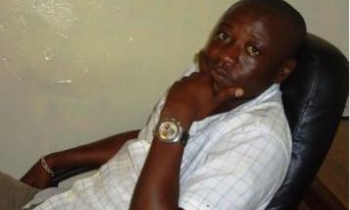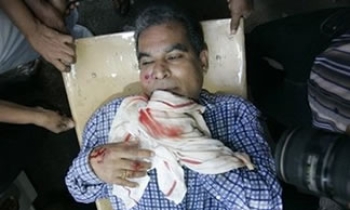News Corp chairman Rupert Murdoch suffered a shareholder backlash, although the billionaire angrily denied there was an "outcry" about his company's controversial `poison pill' takeover defence measure.
Just over 13 per cent of News Corp shareholders opted to withhold their vote in the re-election of four of the company's directors.
It was viewed as a protest against Murdoch's controversial decision to extend a poison pill anti-takeover measure without seeking shareholder approval to do so.
The vote was announced at a fiery News Corp annual general meeting in Manhattan.
"It's the largest ever protest vote against News Corp," said renegade Australian shareholder activist Stephen Mayne, who repeatedly took Murdoch and his board to task during the two hour meeting.
The four News Corp directors up for re-election were Murdoch's right-hand man and chief operating officer, Peter Chernin, DirecTV chief Chase Carey, former British Airways chief Rod Eddington and Andrew Knight, a former editor of The Economist magazine.
The four received between 85 per cent and 87 per cent of the vote.
With media investor John Malone, an 18 per cent stockholder in News Corp, voting to retain the directors and the Murdoch family with 30 per cent also supporting their re-election, there was little doubt the four directors would be retained.
It was Malone, who built up his shareholding in News Corp in recent years, who inspired Murdoch to introduce the poison pill.
Murdoch told the meeting negotiations between Malone and News Corp regarding Malone reducing his stake were continuing.
Murdoch sternly rejected a reporter's assertion there had been a shareholder outcry over News Corp's poison pill strategy.
"Let's get this straight," Murdoch said.
"There's no outcry."
A group of 11 major News Corp shareholders, including the UK's Hermes Asset Management and the Australian Council of Superannuation Investors, have filed a lawsuit in the US against the company for extending the poison pill.
The group argued News Corp had promised to not renew the poison pill when it expired without shareholder approval.
Andrew Clearfield, representing the 11 shareholders at the meeting, told Murdoch "you broke your promise" when the poison pill was extended.
He said the issue should have been voted on by shareholders at the meeting.
"Why did you not put the poison pill up for a vote like you said you would?" Clearfield asked.
Murdoch was upbeat about News Corp's performance over the last year, declaring it was in "the strongest financial position in its history".
"Quite simply, our performance in fiscal 2005 was outstanding," Murdoch said.
Asked about News Corp's subdued share price , Murdoch said all media stocks were suffering.
"We are living in a bear market," he said.
"We can't ignore that fact.
"... We would love our shares to be higher ... all I can say is we are doing our best."
He did flag a potential lift in dividend for shareholders.
"Hopefully we will continue to improve our profits and improve our dividend," Murdoch added.
Murdoch's son, Lachlan, who remains a board member despite announcing earlier this year he was quitting his executive positions within News Corp, attended the meeting.
Quizzed about his son's departure, Murdoch said Lachlan made a "personal decision" to resign and "do his own thing" and the company would welcome him back.
Asked who would take over News Corp if Murdoch decided to retire, the 74-year-old shot back that he had no plans to give up his position as chairman of the company.
"With great respect to everybody here, I don't want to quit or plan to," Murdoch said.
A decision on who would replace him if he eventually decided to step down would be made by "the whole board".
The News Corp chairman also doused speculation News Corp was eyeing a stake in Time Warner's AOL unit to boost its internet presence.
"I doubt it," Murdoch responded when asked if he was interested in taking a stake.
Murdoch also rejected claims by Deutsche Bank's former media analyst, Mike Mangan.
Mangan accused News Corp of pressuring broking firms to publish positive research reports and said he was "abused, insulted and sworn at" after downgrading his recommendation on News Corp shares.
"They are very serious allegations and they are totally fiction," Murdoch responded.









